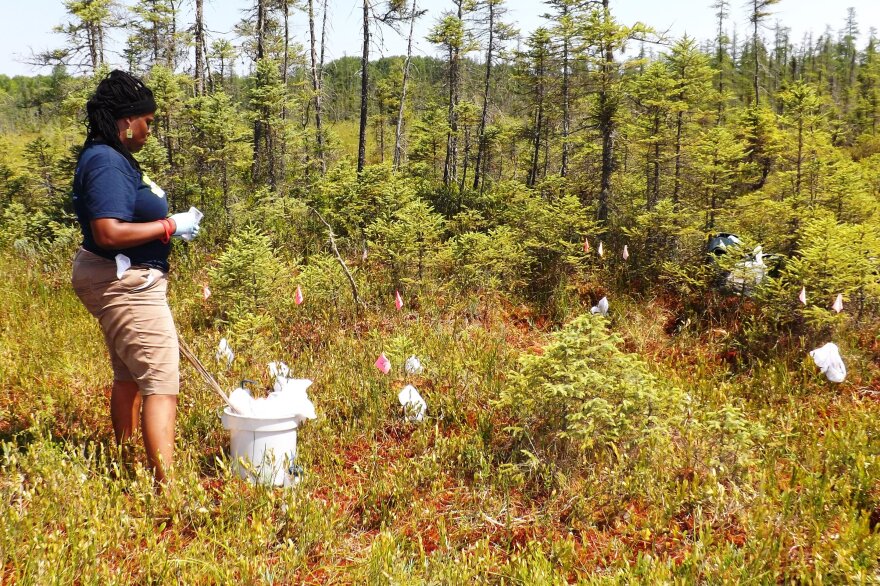Graduate students are expected to do research. Undergraduates usually don’t. But a new project at Western Michigan University’s Department of Biological Sciences hopes to change that. It’s using a fundraising system modeled on Kickstarter to attract community support for SABRE: "Students Advancing Biological Research and Engagement."
A connection between SABRE, a plant that eats bugs, and climate change may not seem obvious. But this summer, Western Michigan University senior Deirdre Courtney will study a carnivorous plant that drowns its insect prey.
“CO2 is actually a benefit to these plants. That's what we're finding out in the research; that CO2 helps these plants to grow. It helps these plants to thrive. But, under normal circumstances, CO2 is not good for the environment. So, even though these plants may thrive in this environment, placing these plants under elevated CO2 allows us to see some of the other indicators that will show these kinds of climactic changes.”
Courtney is one of four students in the pilot SABRE program. Each will work with a professor in Western’s Biology Department. Courtney she and Professor David Karowe will continue their research on the effects of the “greenhouse” gas on pitcher plants at the University of Michigan Biological Station near Pellston. She got involved in the project last summer. But without financial help from the new SABRE initiative, Courtney says she isn't sure that she could continue. And Courtney says SABRE helps make the field of biological research more diverse.
“As a nontraditional, African-American, female student, I typically don't see a lot of people like myself in ecology fields, environmental science fields, environmental studies fields, or the field of science itself. And I would hope that my involvement in this type of program would encourage others to pursue these types of careers, or even education.”
Western's Biology Department hopes crowdsource funding that's more often associated with arts projects or start-up tech companies will help make that happen. Biology Professor Kathryn Docherty helped start SABRE. She says “hands-on” involvement in real science should not be restricted to grad students.

“Many students, including myself, as an undergraduate think back on their undergraduate careers and think of the time and energy and dedication that they had to put into research, and how that taught them what it meant to be a scientist, and what it meant to scientific discovery, which leads to any type of medical discovery, any type of environmental issue information. So, I think that having that experience is one of the most unique things we can provide to students. We can’t do it for every single student because there are 25,000 students at Western, or more. But we can do it for a few and we’re hoping to expand this program to start sending out very informed and critical-thinking scientists into the Kalamazoo community and beyond.”
Unfortunately, Docherty says there aren’t many sources of money for undergraduate research. The National Science Foundation pays for some work by students from “underprivileged” colleges and universities. And Western’s Lee Honors College helps fund some other projects. But Docherty says getting more undergrads into research means looking for new ways to support them – like crowd-sourced donations.
“We have been encouraged by the College of Arts and Sciences and the university to engage is 'discovery driven and learner-centered' education. SABRE is exactly that: something that's promoting discovery by our undergraduate students. And it provides a very individualized education to a few students working with a faculty mentor.”
Senior Deirdre Courtney says she plans to use her SABRE- funded research at Western to launch a career as a scientist.
“What I could see myself doing is working in an area where I can use my scientific background and critical thinking skills to inform future environmental policy.”
The SABRE project hopes to raise $20,000 this year through "micro-donations" at the project's webpage. That would provide $4,000 to each of the four undergraduate researchers, and cover travel expenses and other costs. The students are also required to spend at least ten hours each week as volunteers in the community.


